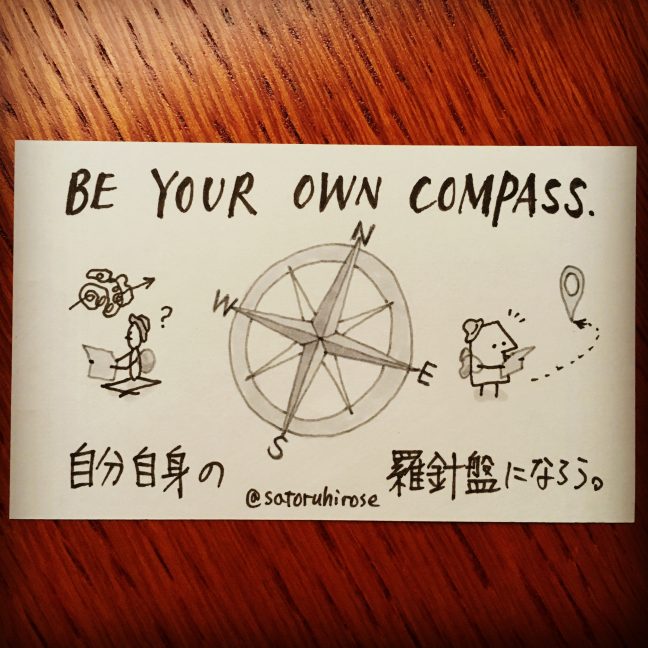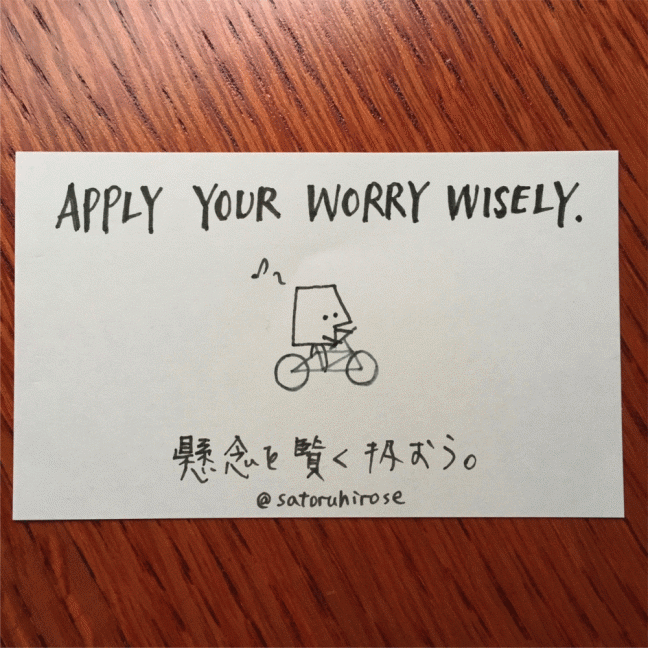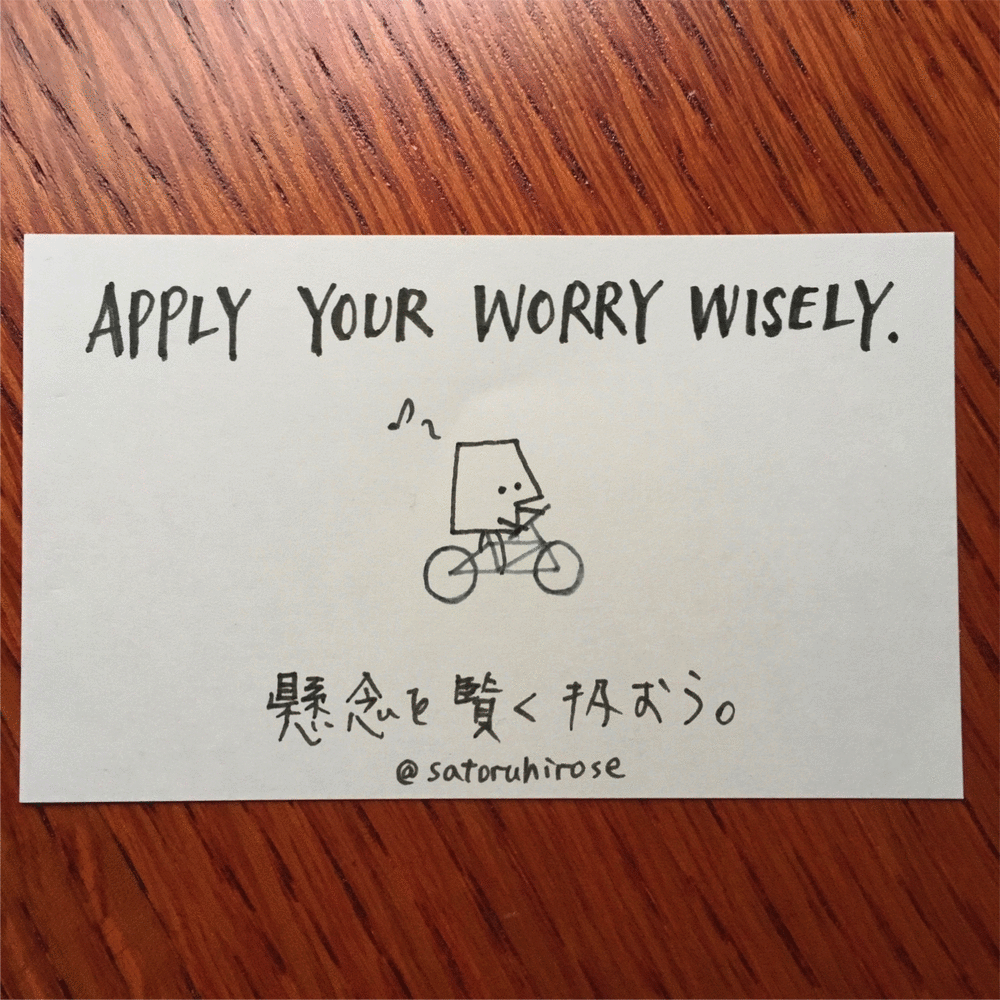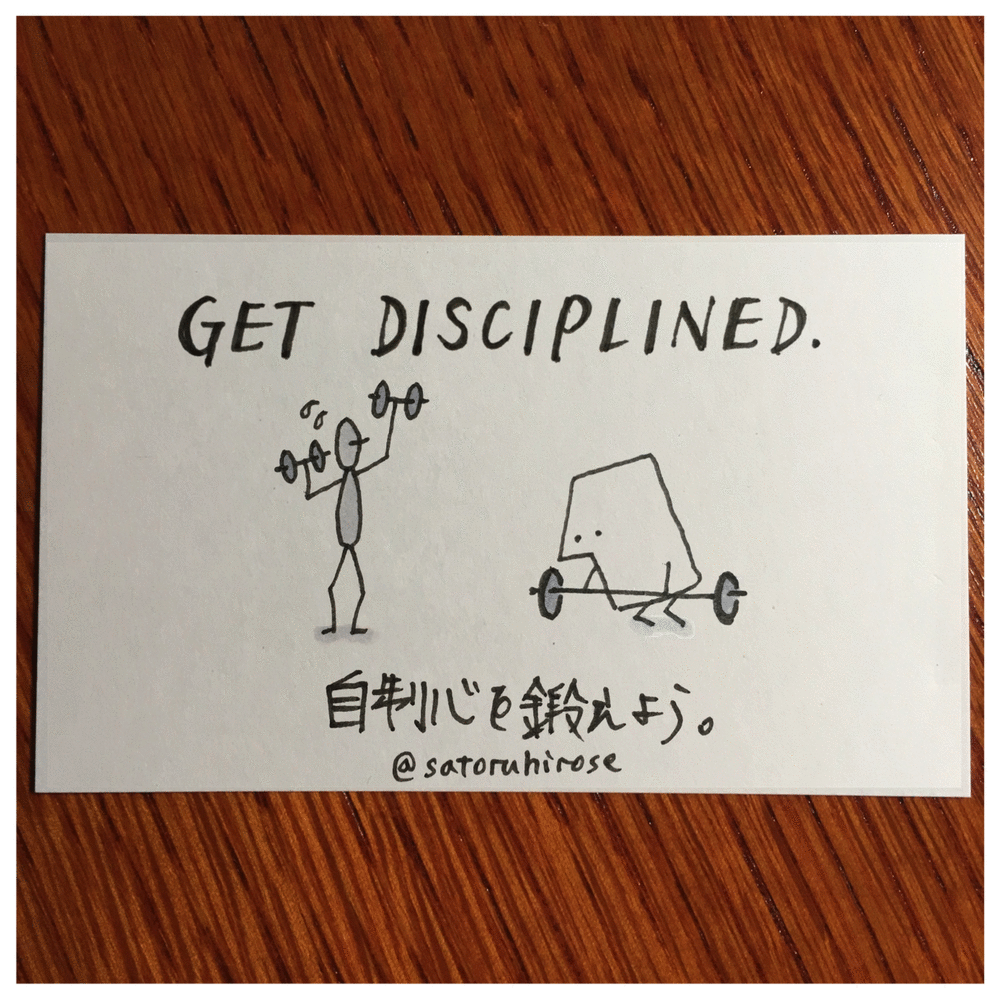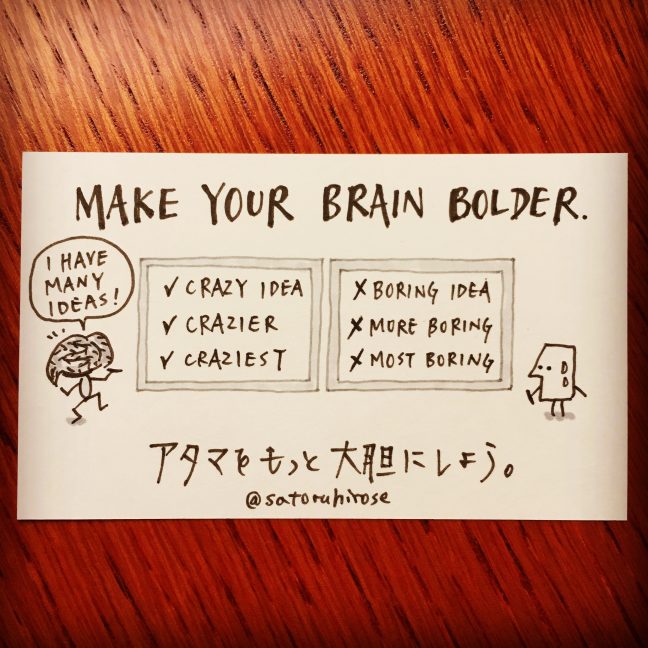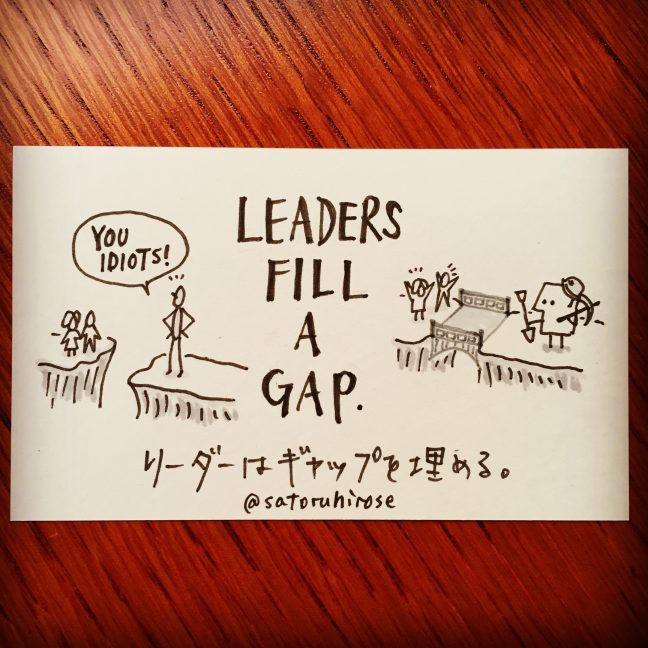Be your own compass.
自分自身の羅針盤になろう。
You are the only person who can be consistent with your true self.
Don’t expect others to be consistent for your sake. Many people — including your teacher, your family, your close friends, authorities, famous writers or successful entrepreneurs — are sometimes inconsistent with their words. It doesn’t mean that they are careless or frivolous; it just shows how hard it is for all of us to be consistent with ourselves.
Take time to reflect on who you are. Think about your important belief. Find out why you do (or don’t) a certain thing. Keep a log of your actions and their outcome. Every one or two weeks, go over previous logs to see what went well or wrong.
We can be inconsistent with our previous self when we make progress. That’s okay — it’s a good change. But you have to be sure that you are making progress. If not, you are going nowhere.

